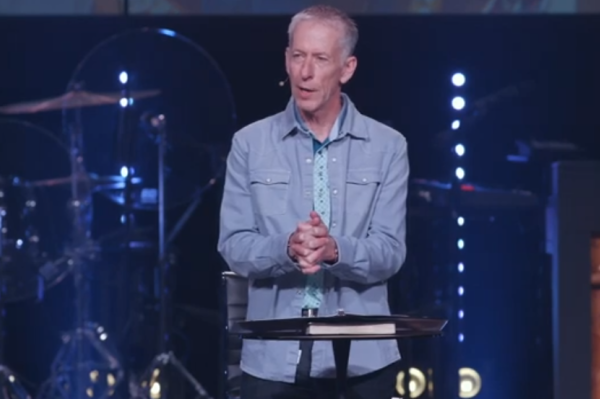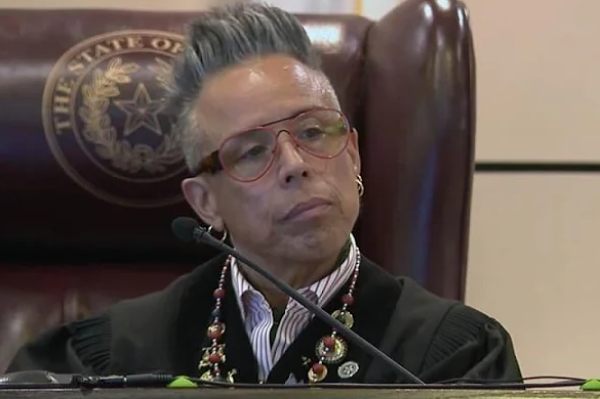The ELCA's Widening Chasm Over Homosexuality
Bethlehem Lutheran Church in Saint Paul, Minnesota is a congregation of the more conservative Lutheran Church - Missouri Synod. It is not unusual these days to find families leaving the ELCA to join the church. However, a new member's class at Bethlehem Lutheran is an unusual place to find young men from the ELCA's Luther Seminary in Saint Paul. Pastor of the Church, Robert Krueger, says that he sees more ELCA students coming to his traditional and liturgical congregation. "They all have expressed a disappointment in the direction the ELCA is going, and its general disregard for the Bible as the Word of God."
One of those seminary students, Barcon from Madagascar says, "The ELCA's acceptance of practicing gay pastors and gay marriage would not happen in my region of the world. Even if the homosexual lifestyle is fully accepted by society, how can the Christian Church go against what is taught in the Bible? Even the un-churched know that this is not the teaching of God or of real Christianity."
This doesn't surprise Rev. Bill Sullivan, national service coordinator for Lutheran Congregations in Mission for Christ, a young denomination established primarily for Churches leaving the ELCA. "For some time now we have gotten a few calls a day from congregations planning to leave the ELCA, who want to research their options." These are mostly congregations that are planning to leave regardless of the outcome of the sexuality vote and he hears often from seminarians planning to leave the ELCA too.
Another edit of the "Draft Social Statement on Human Sexuality" was prepared by the Task Force for ELCA Studies on Sexuality and was released in February, 2009. As anticipated, it recommends the full acceptance of practicing gay pastors and gay marriage in a call to "the love of God and neighbor."
In disagreement, ELCA Theologian Dr. Carl Braaten wrote, "The summary of the law is love to God and neighbor. This summary, however, does not nullify the force of the individual laws and commandments of God. They are binding on the people of God, the church of Jesus Christ. " Braaten expresses concern that foreign missionaries would be at risk for persecution, particularly in Muslim lands, if the ELCA goes forward with the recommendation to fully embrace homosexuality. He also says that such a move would put the ELCA in impaired fellowship with most of the world's Christians. He chides such a unilateral move as arrogant, disregarding Christians in the rest of the world.
Outside of the official "dialogue" in the ELCA, there is a silent conversation happening nation-wide. It may very well be a conversation that is underestimated in influence because it is not well publicized.
In 2005 and again in March of 2009, the ELCA has had to re-structure in light of financial constraints, eliminating nearly 100 high level positions. These were actions taken in both time of economic expansion and recession. In 2009, 5.6 million dollars was trimmed from the mission budget, a radio ministry was eliminated, and significant cutbacks in hunger appeal funding were introduced. Most of the ELCA's seminaries have also made significant cuts, as well as the ELCA publishing house Augsburg Fortress. The ELCA continues its "contingency budget planning" in preparation for the upcoming sexuality vote.
Since 2001, the ELCA reports a loss of 400,078 members. In 2007, on any given Sunday, only 28.9% of ELCA's 4,709,956 members attend services. This is a steady annual drop in Church attendance, and leads many to theorize that the trends suggest the loss is far higher than the ELCA is able to quantify.
John Brooks, ELCA communications director says that all of these things have nothing to do with the protracted debate in the ELCA on homosexuality. He points to the economic recession that engulfs all of America right now. He also maintains that the loss of membership recorded for the last 7 years is due to congregations "clearing their rolls of inactive members" and is relatively equivalent to membership losses experienced across the mainline churches.
Brooks echoes the sentiments represented in a recent Public Religion Research survey of Mainline Pastors, including ELCA pastors. 46% of those surveyed do not believe that the mainline churches are declining because they are becoming theologically liberal. In fact, 47% thinks that the decline has been caused by a loss of courage among the churches to take prophetic stands for justice.
Mark Hanson, presiding Bishop of the ELCA, has consistently and strongly urged his clergy to take prophetic stands on social justice issues. At the same time, he has asked his members not to let the ELCA's position on homosexuality to detract from all the good work the denomination does. "The issue of homosexuality in this Church is not all that we are," he says.
But to many in his flock it seems the conflict has consumed the church, has depleted valuable resources, tarnished the ELCA name, and has overtaken the Christian priority of bringing people to Christ. For them, the ELCA has indeed become too liberal. Many of the polite and gracious people of the ELCA, primarily of quiet and reserved Scandinavian background, are more apt to vote with their feet and pocketbooks than to engage a fight with denominational polity.
An 82 year-old great grandmother from California, who was a Lutheran long before the inception of the ELCA, says that people aren't leaving just because of the recommended position on homosexuality. She wrote, "The ELCA has become a social justice advocacy group, where political activism trumps good theology and scholarship, and liberalism and social justice have replaced the Gospel." Like the young seminary students seeking Lutheran churches with traditional values and theology, she intends to remain a Lutheran if her congregation leaves the ELCA.
Pastors and Theologians who have advocated reforming the ELCA rather than leaving it, are beginning to concede that the conflict is not about sexuality. It is really about broad irreconcilable differences in how traditionalists and progressives understand the authority and interpretation of the Bible. They maintain that the authority of Scripture is a core value that cannot be negotiated and that abandoning teachings accepted for thousands of years destroys the foundation for fellowship articulated in the ELCA constitution. For many of them, the mergers that formed the 20 year old ELCA have proven to be a mistake.
Judging from these "silent conversations," it appears that the ELCA may have underestimated the true cost to pursuing this particular social justice agenda. 7 years is a long time to fight in a Church about homosexuality, no matter what side you are on. The damage already done may be irreversible. Few congregations can survive such a church fight, and even if they do, their success in the long-run is often in doubt.
The ELCA is quick to dismiss such a dismal prognosis, but right now things are not looking good for them as they clamor to plug the dikes in what is shaping up to be a tsunami of members leaving the denomination.





















